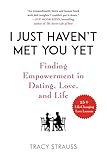As a woman and survivor of sexual violence, speaking my truth has always felt important. But when it came to publishing my first book, a work of narrative nonfiction that deals in part with overcoming the effects of sexual abuse, assault, and harassment, I found myself on a long journey with many roadblocks.
Mine is a story I was told not to tell—by my family, by the publishing industry, and by society itself. While writing, revising, and submitting my book to literary agents and editors, I had to fight against my fears and the beliefs I’d acquired growing up in an abusive home: that the world was going to shun me; that I was going to be silenced or disliked or otherwise rejected because of my truth. And yet, for a long time, that is what happened. Sexual violence is prevalent in our lives, but there has been, and continues to be, a culturally conditioned fear around acknowledging it, speaking about it, hearing about it, dealing with it, and doing something about it. The #MeToo movement has started to create receptivity, an openness for such stories, but change is slow.
During many years of workshopping my manuscript, I received a wide range of reactions to the content, including fear, anger (toward the survivor for speaking, not the perpetrator for perpetrating), and denial, reactions that were unrelated to the writing itself. I knew I needed to disarm these conditioned responses to sexual violence through my approach to the content on the page, by utilizing writing techniques including pacing, reflection, language choice, and description, to ground and educate my readers. I’ve gone through my traumatic experiences, but my audience has not. I’m not writing for therapy or myself; my job as a writer is to guide my readers and help them navigate difficult terrain. I knew I needed to find a way, through my style of storytelling, to deal with my audience’s conditioned responses to sexual violence. Otherwise my manuscript would remain buried in a drawer or be tossed in the trash—something many agents and editors, who praised my writing, told me to do with the book.
I was urged to wipe my book clean of what one famous author and teacher deemed “the ick” factor, which I was told would be a major roadblock—if not a complete dead end—to finding an agent or publisher. A prominent editor on a Boston Book Festival panel told the audience that nonfiction manuscripts about sexual abuse should not be pitched to her or anyone. A story about murder, however, was acceptable. Other publishing professionals said they wouldn’t acquire abuse stories because the market was flooded with them. Or they said the opposite: there was no readership. These were paradoxical statements that I soon realized were deflections—they weren’t factually true; they were, in my opinion, excuses that reflected the stigmas society places on disclosing #MeToo stories. Fictional accounts, such as those in The Lovely Bones or The Perks of Being a Wallflower, were welcome, but there was a problem if the story was real.
I didn’t know whether to call myself masochistic or determined, but I didn’t listen to those agents and editors. I just kept writing and trying to put my work out there. I knew my story was much greater than “the ick” factor. Yes, sexual abuse was a part of the obstacles I’d faced and overcome in my life, but it wasn’t the whole story. I had faith I’d find industry people who would understand that.
For a decade, I queried more than 300 agents. I was asked by about half to submit my manuscript or proposal for consideration. More than two dozen asked to chat by phone after they’d read my materials—most declined to represent me after phone calls for a variety of reasons, some related to the risk of trying to publish material about sexual trauma—and I signed with three (not simultaneously and with different manuscripts),and received much editorial praise for my writing. But publishers declined to acquire my book.
I could see there was interest, but fear seemed to dictate publishing decisions. I got so used to rejection that I anticipated it with every submission. In late January of 2018, when my then agent decided to stop submitting my latest book to publishers after 11 rejections, I considered giving up. I fell into a very serious depression for many weeks. A writer friend encouraged me to write an essay about my experience in the publishing world. I didn’t think it would change anything, but writing always gives me a sense of purpose, so I wrote the thing as a way of climbing out of my depression. To my surprise, Publishers Weekly accepted and published the piece, and Ms. Magazine reprinted it. That’s when the editorial director at Skyhorse Publishing reached out to me—he’d read the essay and was interested in reading my manuscript. Two weeks later, I was offered a book deal.
My self-help book-cum-memoir, I Just Haven’t Met You Yet: Finding Empowerment in Dating, Love, and Life, is a story of persistence—in dating, in life, and in publishing. One of the many big lessons I learned was not to let the naysayers—in writing or in life—ever define my worth or my potential for success.
Now that my book is out, I’ve been surprised by how welcoming the world has been (my old fears of rejection are still a bit reflexive). I hear frequently from readers when they are just a couple chapters in, telling me they can’t stop reading. I get protective of these readers and recommend they slow down because there are some pretty intense parts to this story. They don’t listen to me, and the next day or so I’ll hear from them again; they’ve finished the book, they stayed up all night reading and couldn’t put the book down. And they tell me all the ways they related to my story and share their stories of overcoming hardships. To have readers feel so invested and connected continues to remind me just how much writing is about being in community and empowering ourselves and each other.
Image credit: Unsplash/ Patrick Fore.













